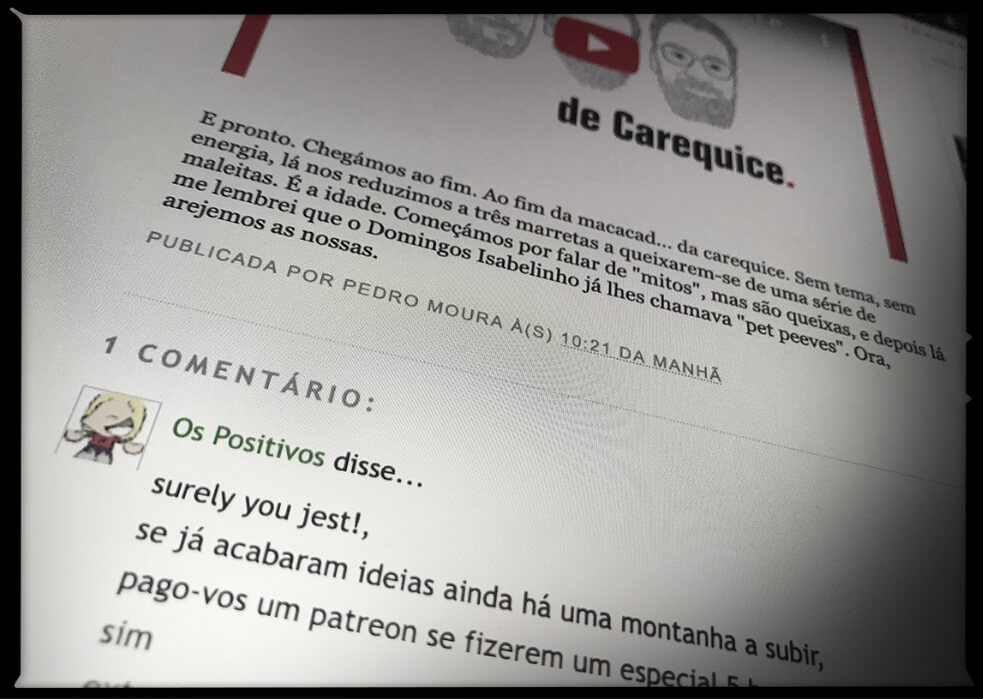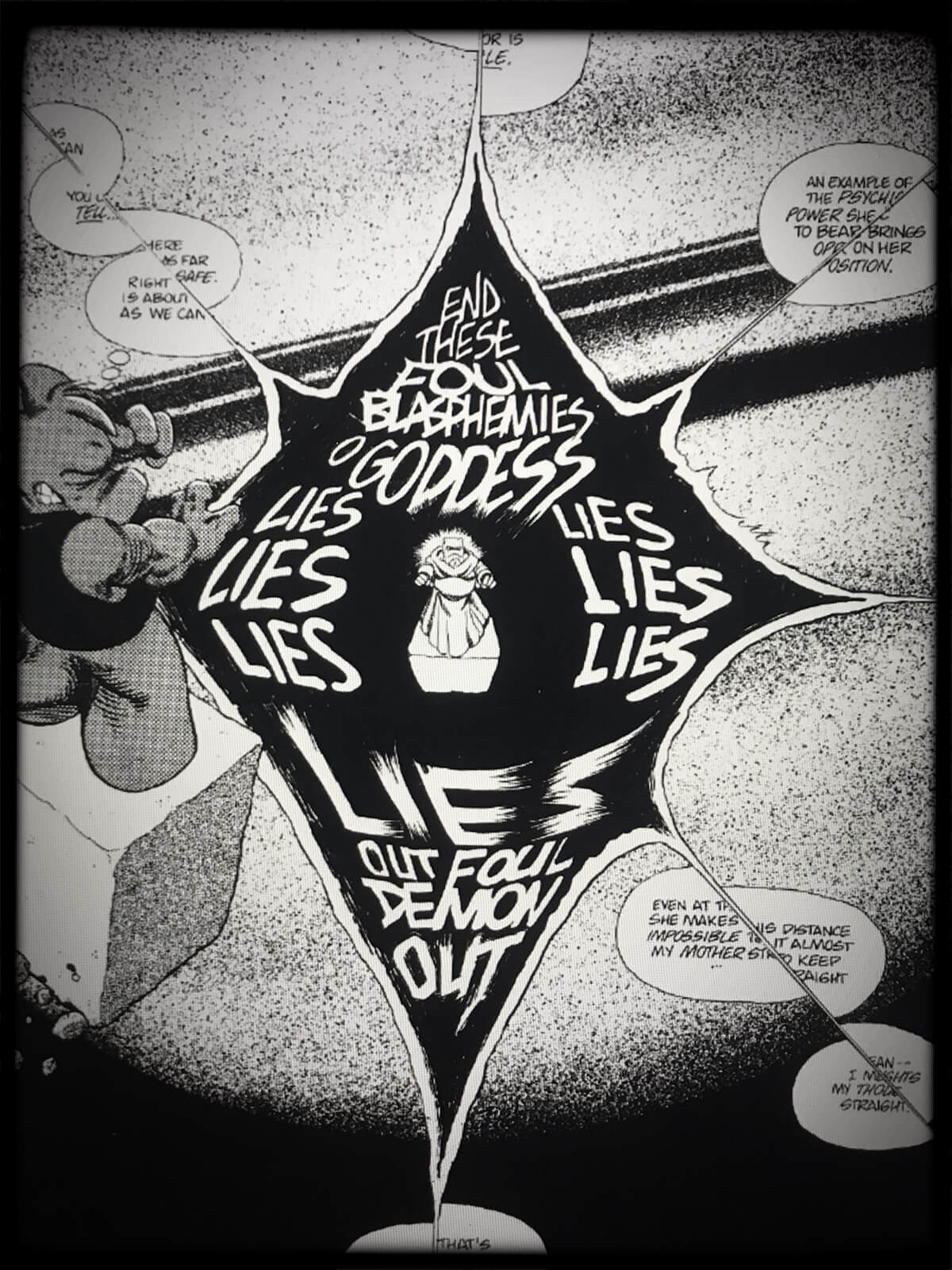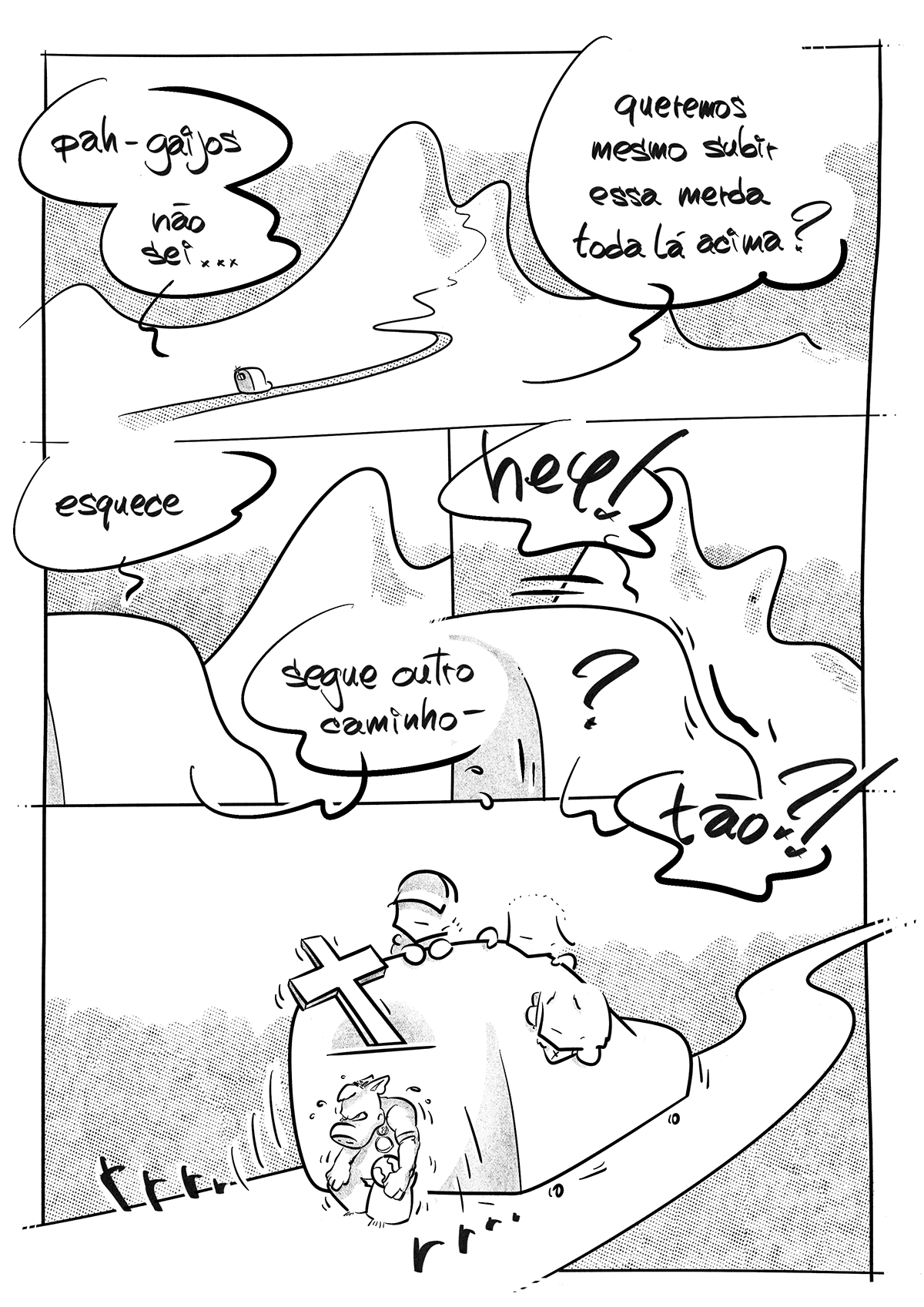ainda não chegámos ao fim
 pet peeves
pet peevesNo final da primeiríssima série dOS POSITIVOS (1997-1999) revelámos como tudo acaba. Desde então temos o nosso bolo e comêmo-lo também, pois poucos terão ainda memória dum zine perdido entre tantos outros de finais da década de ’90, retrospecticamente, um período de grande actividade nos formatos rasteiros. Oh!, a liberdade de termos anunciado ao mundo ao que vamos, e ninguém o ter ouvido. Continuámos a baralhar e dar cartas, umas mais perto do peito, outras atiramos sobre a mesa sem preocupações de onde aterram ou quem as apanha, conclusões já fechadas. Retornado à Wikipedia, “the storyline of The Positives is not obvious to the casual reader, containing several dispersed narratives that seem to converge into a single timeline as short stories and one-offs are connected over time”.
Este vosso escriba está talqualmente determinado aos seus latter days, pecando pela falta de originalidade, mas comprovado na recorrência entre os que se exilam do mundo em seu redor, qualquer época que abram numa página aleatória de enciclopédias filosóficas. Especificamente, uma imagem assombra-nos desde que lhe lemos descrição nas prudências do bem-envelhecer. Não nos lembramos quem, cremos que de afinidades medieval-islâmico: um pequeno pátio interior, paredes brancas, altas, livros.
Como tantos, acumulamos os livros mentindo-nos que os leremos um dia. Estendemos a mesma caridade aos já lidos prometendo revisitá-los. Senhores... Mas temos uma série, e uma das primeiras no nosso percurso, por certa para o derradeiro exilo a que nos brindaremos: Cerebus. Envelheceu bem: tão maldita como difícil, apontámos reler a dita do início ao fim, no fim. Até lá, teasers aleatórios aos nascidos neste século.
Its author, Dave Sim, was at one time regarded as a leading light of comics (and no one has ever credibly demeaned his skill); this changed drastically given a two-step process of first, arguably, defaming women in the early 90s, and second, becoming devoutly religious and arguably right-wing in the 2000s. He and the title have been more-or-less excommunicated from comics fandom, although debates still rage about how arguably, punctuated on either side with such phrases as “you have to admit.” Some of us who stuck it out to the end traded between our interest in the characters/ideas and our fascinated horror at the car crash.
in "God, an aardvark, and the man in between" 25 set 2016

Sigam a mesma ligação se pretendem molhar o dedinho do pé em universos bizarros de herança judaico-cristã e outros debates teológicos por um profeta (da desgraça):
I submit that the full honkin’ 300-issue run of Cerebus the Aardvark constitutes a blanket condemnation of religious institutions – specifically, as rock-bottom incompatible with any experience of revelation, significance, sense of purpose, or “the numinous.”
in "God, an aardvark, and the man in between" 25 set 2016
Aos que não têm o tempo para esta bíblia nunca igualada nas artes sequenciais, calvário inclusive, como tudo acaba no último número:
There is a desperation and melancholy about Cerebus's lonely plight here that feels really heartfelt and of course it finishes with Cerebus's demise, which despite how horrible he is and the atrocities carried out in his name, you can't help finding a little sad along with the more general sadness that accompanies the end of any long running work. Of course the final chapter manages to piss away most of the goodwill the rest of the book has so skillfully built with a completely asinine plot twist but well that's the Cerebus project in a nutshell.
in "Cerebus Book 16: The Last Day (#289-300)" 3 jul 2014

 (no books today)
(no books today)